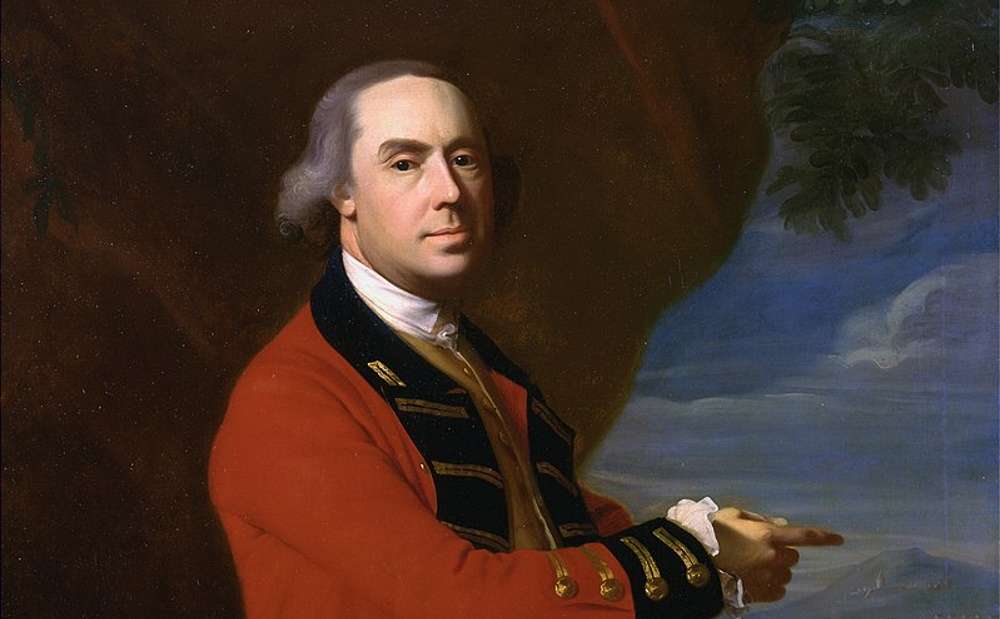On April 17, 1775, the Massachusetts Committee of Safety prepared for the war that was coming, though they didn’t know shots would be fired within 48 hours.
Three days earlier, the military governor of the province, Gen. Thomas Gage, was secretly ordered to use all necessary force to suppress open rebellion among the colonists.
The colonists had an idea of what was going on. The Committee of Safety had appointed men to watch the war stores, fearing Gage would try to capture them. They kept teams ready to remove the war stores and provided couriers — such as Paul Revere — to warn the towns if the British army moved.
The Committee met in Concord, Mass., to appoint men to command artillery companies. It kept a record of the meeting that day.
Committee of Safety
April 17, 1775.
At a meeting of the Committees of Safety and Supplies, at Mr. Taylor’ s house, in Concord, on Monday, 17th April, 1775. Present:
COMMITTEE OF SAFETY. — Honourable John Hancock, Esq., Colonel Heath, Colonel Palmer, Captain White, Mr. Devens, Colonel Gardner, Mr. Watson, Colonel Orne, J. Pigeon.

John Singleton Copley painted this portrait of John Hancock around 1771. Courtesy Massachusetts Historical Society.
COMMITTEE OF SUPPLIES. — Colonel Lee, Mr. Gill, Mr. Cheever, Mr. Gerry, Colonel Lincoln.
Voted unanimously, That application be made to Captain Hatch, for captain of the Artillery Company for Boston; and if he refuses, to offer it to Mr. Crafts, and so on in order, as they stand in the Company. Also that Capt. Robinson, of Dorchester, be applied to as captain of the Company of Dorchester; and that Mr. Newall, of Charlestown, be applied to; that the Captain for the Marblehead Company be not appointed until the Members for Marblehead head make inquiry and report. That Capt. Timothy Bigelow be applied to as captain of the Worcester Company, and that Mr. Thomas Wait Foster, of Hadley, be applied to as captain of the Company at Hadley.
Voted, That the two Four-Pounders now at Concord be mounted by the Committee of Supplies; and that Colonel Barrett be desired to raise an Artillery Company, to join the Army when raised, they to have no pay until they join the Army; and also that an Instructor, for the use of the cannon, be appointed, and to be put directly in pay.
Voted unanimously, That six Pounds, lawful money, per month, be for Captain’ s pay in the Artillery Companies; that the First and Second Lieutenants have four Pounds; the Lieutenant of fire-works to have three Pounds five Shillings; the Sergeants to have forty-two Shillings per month; the Corporals thirty-eight Shillings per month; the common men thirty-six Shillings per month; the Drummers and Fifers thirty-eight Shillings per month; also, that four Shillings per week be allowed for their board.
Voted, That when these Committees adjourn, it be to Mr. Wetherby’ s, at the Black-Horse, Menotomy, on Wednesday, ten o’ clock.
Voted, That the four Six-Pounders be transported to Groton, and put under the care of Colonel Prescott.
Voted, That two seven-inch Brass Mortars be transported to Acton.
Voted, That the two Committees adjourn to Mr. Wetherby’ s, at Menotomy, ten o’ clock.
This story updated in 2022.


3 comments
Also contributing to the feeling of the inevitability of war was Paul Revere’s first ride in December to Fort William and Mary in New Hampshire to warn of regulars sent out to seize the gunpowder(false alarm), and the Leslie’s Retreat incident in Salem several weeks before, in February, with everyone armed; if anyone had fired a shot at the bridge in Salem, the Revolution could have easily started there…
One thing I’ve never read the details of, but I have to believe existed, is what was in place for relay of horses.
From when Israel Putnam received word of Lexington and Concord to when he arrived at Cambridge to take command 18 hours passed — and that included first riding west to Lebanon, Conn. to meet with Governor Trumbull at the War Office.
Putting aside that a ride of such length, over roads that were barely more than trails and just days out of “mud season” would be exhausting to a 57 year old man to today, a ride that long, that quickly would have exceeded what well-bred and cared for cavalry horses of the Civil War would be expected to perform even in emergency situations.
So there must have been some sort of relay of horses involved. What I do not know is whether this was some existing arrangement where travelers could get fresh mounts at taverns or other locations along busy travel routes, if a relay of horses for key individuals had been pre-arranged in anticipation of hostilities, or if Putnam was left to beg and cajole new steeds to ride along his route.
[…] came together on the eve of the Britsh move against the stash at Concord and issued orders to shuffle around the assorted cannon and mortars under their control in something of a shell game to stay one step […]
Comments are closed.